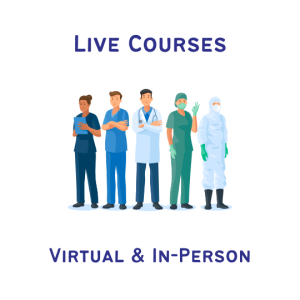
Published May 17, 2023 | Updated August 10, 2023
By Mahen Elapatha
I’m Mahen Elapatha, a medical doctor from Sri Lanka (MBBS Col.)
April 21, 2019 – a date etched in the hearts of Sri Lankans forever. The day that started with the hope of celebrating the resurrection of Jesus Christ, turned into a nightmare that no one could have ever imagined. Churches filled with faithful worshippers were struck with terror as malicious terrorists unleashed their wrath upon them.
The sound of explosions echoed through the city, shattering the peace and tranquillity that once prevailed. In just a matter of minutes, six bombs detonated, unleashing chaos and devastation in their wake. The once serene and holy places were now reduced to rubble, stained with the blood of innocent souls.
The luxurious hotels that once welcomed guests with open arms now became the targets of these heartless terrorists. The guests who were enjoying their stay were caught off guard, becoming victims of this senseless violence. The attackers showed no mercy, their only goal was to inflict pain and destruction.
253 lives were lost, and more than 500 individuals were left wounded, many of them permanently scarred by the physical and emotional trauma. The attack not only took the lives of Sri Lankan residents but also foreigners who were visiting the country. The tragedy struck the hearts of Indians, Britons, and Americans, who lost their loved ones in the attack.
The aftermath of the attack left the country and the world in complete shock. The senseless violence had robbed families of their loved ones, leaving them to grieve in pain and anguish. The scars of the attack would take a long time to heal, but the resilience and spirit of the Sri Lankan people would never falter. They would rise above this tragedy, united in their grief, and determined to move forward.
Mass Casualty Incident in Sri Lanka
A Mass casualty incident (MCI) is a term used to describe a medical emergency that involves a large number of casualties, often resulting from disasters such as natural calamities or man-made disasters. In such situations, medical resources and staff are stretched to their limits, and the focus shifts from treating individual patients to maximising the number of people who can be helped with the available resources, in order to improve overall patient outcomes.
This is a particularly challenging situation for medical practitioners, as they have to prioritise the allocation of scarce medical resources and decide who receives care and who doesn’t. The selective distribution of resources raises moral questions and can spark controversial discussions, particularly when the situation involves life-threatening injuries and limited medical supplies.
The Easter attack in Sri Lanka, for instance, resulted in a mass casualty incident that put the medical resources and personnel in the country under immense pressure. In the face of such an emergency, the need for quick and efficient triage techniques cannot be overstated. It is imperative that medical professionals act quickly to ensure that patients receive the necessary care and treatment and that the limited resources available are allocated in the most effective way possible.
While the issue of morality in such situations cannot be ignored, the primary focus must always be on saving as many lives as possible, regardless of nationality, race, religion, or any other factor.
The need for a quick, efficient, and effective response to a mass casualty incident cannot be emphasised enough, as every second counts when dealing with life-threatening injuries. Ultimately, the goal is to ensure that the maximum number of patients receive the necessary care and treatment so that they have the best possible chance of recovery.

My Experience as a Doctor at a Major Trauma Centre in Colombo
As a doctor who was on duty at a major trauma centre in Colombo during the Easter attacks, I witnessed the devastating aftermath of the brutal bombings. It was an experience that will forever be etched in my memory. Our team of healthcare workers had the daunting task of dealing with the injured victims of the attack. It was an emotional and physically draining experience for all of us.
The injuries varied from minor wounds to critical conditions requiring immediate medical attention. Our team of healthcare workers responded with unwavering dedication and professionalism, working tirelessly around the clock to provide medical care and support to the victims. It was challenging, but we knew that the lives of those in our care depended on our quick and efficient actions.
The patients we treated suffered from traumatic injuries such as head injuries, limb trauma, severe burns, and excessive loss of blood. They required extensive medical treatment and rehabilitation to recover from their injuries. As healthcare professionals, we provided them with the care they needed to heal and recover.
The Sri Lankan government also launched a massive healthcare effort to help deal with the aftermath of the attacks. They deployed medical teams, ambulances, and other emergency resources to the affected Colombo city while also calling on international aid organisations for assistance. The response from the healthcare community was overwhelming, and it was heartwarming to see the support pouring in from all over the world.
However, it wasn’t just physical injuries that we had to deal with. The victims of the attacks also experienced profound psychological trauma that required extensive mental health and psychosocial support. As healthcare workers, we provided them with the psychological care and support they needed to overcome the long-term effects of their injuries. It was emotionally challenging, but seeing our patients recover and regain hope made it all worth it.
All in all, the dedication of healthcare workers in managing mass casualty incidents cannot be overstated. We may face overwhelming challenges, but our commitment to providing medical care and support to the victims remains unwavering. As a healthcare professional, I am proud to have been part of the team that responded to the Easter attacks, and I remain committed to serving my patients with the utmost dedication and professionalism.
How I Dealt with the Injuries and Sufferings of the Victims
As a medical professional, I learned that handling patients with trauma requires a compassionate and comprehensive approach. Here are some strategies for managing trauma patients and how I worked for them:
1. Ensure Patient Safety
The first step in caring for trauma patients is ensuring their physical safety. I moved them to a safer location and stabilised any apparent injuries. Thus, we minimised the risk of further harm to the patient.
2. Assess the Patient’s Condition
Once the patient was safe, the next step I did was to assess their overall condition. This includes checking for any visible injuries, taking vital signs, and evaluating their level of consciousness.
3. Triage
In a Mass casualty situation, a triage system is used to prioritise patients based on the severity of their injuries. For this reason, I treated the most critically injured patients first.
4. Provided Basic First Aid
As a Medical professional, I had to provide basic first aid to stabilise the patient’s condition. This step included controlling bleeding, administering oxygen, and providing pain relief.
5. Transfer to a Medical Facility
Once the patient’s condition was stabilised, I transferred them to a medical facility for further treatment. This involved transporting them by ambulance, helicopter, or other medical transportation.
6. Provided Emotional Support
Trauma can have both physical and emotional effects on patients. Victims needed emotional support too.
7. Follow-up Care
After receiving initial treatment, the patient needs ongoing care and rehabilitation to recover from their injuries fully. Medical professionals, including me, tried to provide appropriate follow-up care to help patients achieve the best possible outcomes.
It’s worth noting that handling trauma patients requires extensive training and experience and that medical professionals should follow best practices to ensure patients’ and caregivers’ safety and well-being. Professional medical assistance should always be sought in cases of trauma.
Providing Emotional Support is Crucial in Caring for Trauma Patients
Emotional support is an integral part of caring for trauma patients. Experiencing trauma can be a distressing and overwhelming experience, and patients may need support to cope with the physical and psychological effects of their injury. Here are some ways to provide emotional support to trauma patients:
- Listen: Let the patient express their feelings, fears, and concerns. Listening actively shows that you care and can help the patient feel validated and understood.
- Provide reassurance: Provide positive affirmation and empathise with the patient’s situation. Making statements such as “I am here to help you” or “You are not alone” can provide much-needed support.
- Encourage coping strategies: Encouraging and teaching coping strategies can help patients feel more in control and better cope with their injuries. Techniques like mindfulness, meditation, or deep breathing can help reduce anxiety and provide a sense of calmness.
- Connect with resources: Link patients with support groups, social workers, or other resources that may help them recover.
- Educate the patient: Educating the patient on the nature of trauma, including its physical and psychological effects, can help them understand their experience and manage their recovery expectations.
- Respect boundaries: Respecting the patient’s sense of privacy and autonomy is critical in providing emotional support. Be respectful of any limitations they may have established.
- Cultivate a sense of safety: Creating a safe, supportive environment for trauma victims is crucial. Ensure that patients feel safe in the hospital, have access to information, and feel their concerns are being addressed.

Overall, providing emotional support requires a combination of empathy, knowledge, and effective communication. Healthcare professionals should remain non-judgmental, supportive, and compassionate throughout the patient’s recovery and tailor their approach based on individual needs.












